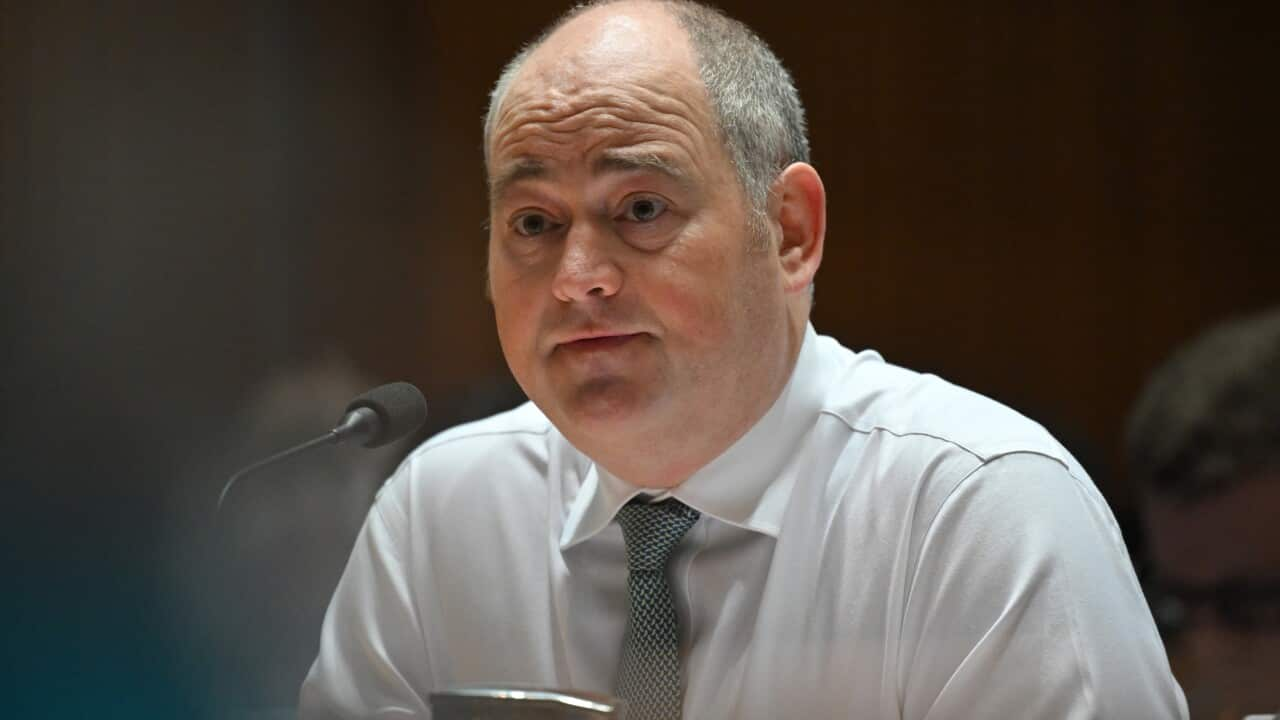A major bank boss has taken aim at "outrageous" card payment surcharges, saying they are no longer fit for purpose.
Surcharges — which cost Australians about $960 million a year, according to a March analysis of RBA data by the ABC — are becoming Australia. Some retailers add them to cover the cost of processing a transaction.
The Reserve Bank of Australia (RBA) plans to expedite a review of the practice and hopes to release a consultation paper on the issue by the end of the year.
But Andrew Irvine, the chief executive of NAB, would ideally like them to be scrapped altogether.

Card payment surcharges have become increasingly common. Source: AAP / Dan Peled
The practice was given a green light by the RBA in 2003 in a bid to encourage consumers to use lower-cost payment methods such as debit cards and cash, rather than credit cards.
"Debit is much more prevalent [now]," Irvine said.
"It's possible that surcharging was warranted 20 years ago, but I think it behooves us to ask whether it still serves its purpose.
"It's in my view that it just adds to confusion; it means I don't know what the price of a good is that I'm buying, and I don't like it."
Under rules set by the RBA and enforced by the Australian Competition and Consumer Commission (ACCC), businesses aren't allowed to add a surcharge that's more than what it costs them to process a specific type of payment.
The RBA has previously estimated the cost of processing Visa and Mastercard debit and credit card payments as being between 0.5 per and 1.5 per cent of the total purchase price.
Irvine told the committee of a "shocking" experience earlier this year when he was slugged with a 10 per cent surcharge when buying a coffee.
"That's outrageous," he said.
"If surcharging remains, I hope to goodness that it's simpler, more transparent and consistent."
Surcharges are banned in the United States, Canada, Europe, and Britain.
The committee hearings are held yearly to examine how the major banks have been balancing the interests of their stakeholders, including borrowers and depositors..
This year, they have come against a backdrop of and stubborn inflation impacting household budgets.
ANZ chief executive Shayne Elliot Elliott also appeared on Friday, and said while many households were managing despite the economic conditions, trouble loomed.
"People are finding it harder to pay for housing and everyday expenses, and businesses are struggling with higher costs," he said.
"We expect that more people in business will sadly get into difficulty in coming months."
With the Australian Associated Press.










